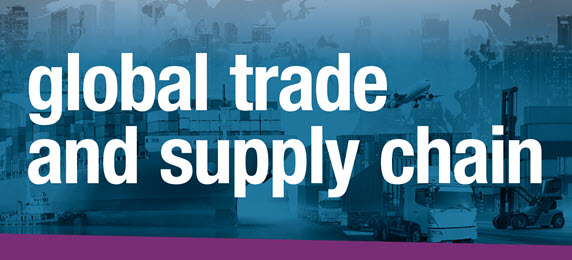
USTR Finalizes Port Fees on Chinese-operated and Chinese-built Ships
On April 17, 2025, the Office of the United States Trade Representative (USTR) announced final actions under the Section 301 investigation targeting China’s maritime logistics and shipbuilding sectors. The measures, which reflect significant changes from the initial proposal released in March, introduce a phased and more narrowly tailored fee structure on Chinese-built vessels and operators.
Key Changes from Initial Proposal
USTR made significant changes from the initial proposed actions in response to public comments and industry concerns. Fees will now apply per U.S. voyage, not per port call, and are capped at a maximum of five times per vessel each year. The fee structure has shifted from a flat rate to one based on vessel net tonnage or container volume, with gradual phase-in.
Summary of Final Fee Structure – Starting in 180 Days (on Oct. 14, 2025)
Chinese Vessel Operators and Vessel Owners:
- $50 per net ton, increasing by $30/NT annually over three years on April 17. The fee is assessed at or before the first U.S. port on a particular string. The fee will be charged up to five times per year, per vessel.
Operators of Chinese-Built Ships:
- The higher of the two options: (1) $18 per net ton, increasing by $5/NT annually over three years on April 17; or (2) $120 for each container, increasing by $30+ annually over three years on April 17.
- The fee is assessed at or before the first U.S. port on a given voyage. The fee will be charged up to five times per year, per vessel.
- A vessel operator is eligible for a fee remission for up to three years if it orders and takes delivery of a U.S.-built vessel of equivalent size.
Foreign Vehicle Carriers:
- $150 per Car Equivalent Unit (CEU) to incentivize the use of U.S.-built car carriers.
LNG Shipping Restrictions:
- After three years, there will be incremental limits over 22 years on the use of foreign-built LNG vessels, aimed at bolstering U.S.-built LNG capacity.
Additional Clarifications
- Fees are not cumulative per voyage.
- Only one fee applies per voyage, regardless of how many categories are triggered.
Fee Exemptions
- Ships operating in the Great Lakes, U.S. territories, the Caribbean, or bulk vessels arriving empty are largely exempt.
- Companies ordering U.S.-built vessels can apply for a three-year suspension of equivalent fees on non-U.S.-built ships.
New Section 301 Investigations on Equipment
In parallel with the fee structure, USTR has launched new Section 301 investigations on:
- Ship-to-shore cranes: proposed additional duties of up to 100%
- Cargo handling equipment: proposed additional duties of up to 100%
USTR is accepting public comments from stakeholders regarding the products and tariff rate of the proposed actions. The deadline to submit comments is May 19, 2025.
On Your Behalf
The Auto Care Association submitted comments to the Office of the U.S. Trade Representative (USTR), urging reconsideration of proposed fees on Chinese maritime operators and maritime operators using or having pending orders of Chinese-built ships due to their potential unintended consequences for United States businesses and consumers.
In its submission, the Auto Care Association highlighted concerns about increased costs, reduced competitiveness and significant disruptions to domestic logistics and supply chain networks. The association emphasized that the proposed fees would harm U.S businesses and U.S. consumers, who would inevitably bear the brunt of increased costs.
The Auto Care Association, along with a group of more than 30 organizations representing a wide range of industry sectors, commissioned a study conducted by Trade Partnership Worldwide, LLC, to examine the net economic impact of the USTR’s shipbuilding remedies.

Angela Chiang, Director, International Affairs
Doing business across borders can be tough, especially now. My work centers around helping you explore new and emerging markets, finding new business partners and navigating trade policy. More About Me

As trade policies are updated and supply chain challenges continue, this section provides the latest information on how your business can navigate the changes.
More posts
Content
-
[WATCH] 2022 Business Outlook: Top Emerging Opportunities and Challenges
February 4, 2022This webinar explores need-to-know emerging opportunities and challenges for the coming year: current status of supply chain issues and what to expect in the year ahead and more.
-
[REPORT] 2022 Auto Care Factbook
May 6, 2021The only publication of its kind, this report includes data on light vehicle sales volume for key aftermarket product categories, sales percentage growth, light vehicle product growth and much more.
